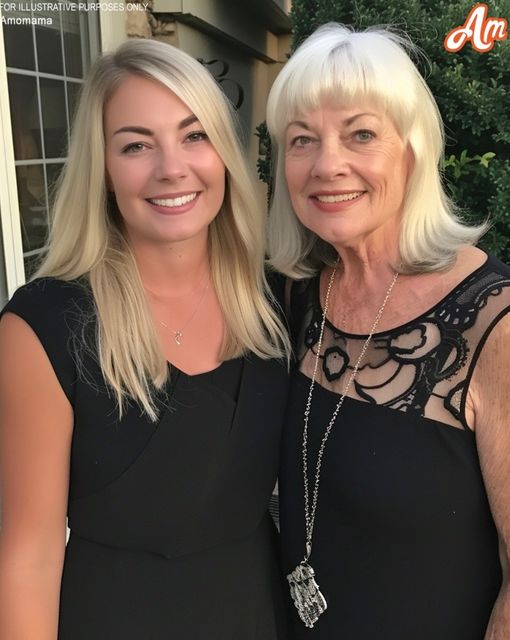From the outset, it was clear that Robert’s mother, Elizabeth, would be a formidable presence. She had a long history of micromanaging Robert’s life, from his friendships to his career path, meticulously crafting a life for him that mirrored her ideals of excellence.
When Robert and I announced our engagement, Elizabeth was less than pleased. “My son should marry a woman who understands her role,” she would often declare, eyeing me with disdain. In her view, a wife’s duty was to tend to her husband without aspirations beyond homemaking. My ambitions to become a software engineer, however, did not align with her traditional expectations.
One day, Elizabeth summoned me to her expansive home. With a steely gaze, she slid a check across the table. “Seventy-five thousand dollars,” she stated bluntly. “Stay away from my son.”
Stunned yet intrigued by her boldness, I accepted the check, secretly amused by her tactic, and left without a word.
Back at home, Robert and I quickly crafted a response. Aware that Elizabeth would never accept our marriage without witnessing the fallout of her meddling, we decided it was time she learned a valuable lesson.
A week later, at a family event, Robert introduced his new partner, Jessica—a woman who epitomized Elizabeth’s ideal daughter-in-law. Poised, domestically skilled, and seemingly devoted to traditional roles, Jessica impressed Elizabeth immensely. “At last, a woman who knows how to take care of my son,” Elizabeth remarked, visibly satisfied.
However, Jessica soon began to unveil her true colors, making frequent and pointed remarks about her fondness for luxury and financial security, much to Elizabeth’s growing dismay.
As Robert and I watched from our modest apartment, we chuckled about Elizabeth’s predicament. “She thinks she can solve everything with money,” Robert noted.
At the next family gathering, held at Elizabeth’s lavish home, Jessica played the gracious hostess to perfection, further endearing herself to Elizabeth. Yet, as the evening progressed, Jessica’s conversations increasingly revolved around extravagant spending and upscale aspirations.
During a private moment, Robert challenged his mother, “Do you truly believe Jessica is right for me?”
Elizabeth, caught in her own trap, faltered. “She seems to fit the role well.”
“But is she really with me for who I am, or for what I can provide?” Robert pressed.
Jessica, overhearing the exchange, hastily reassured her commitment, though her materialistic intentions were all too clear.
The night ended with Elizabeth pensive and uneasy, the seeds of doubt planted firmly in her mind.
On the drive home, Robert and I pondered whether Elizabeth was beginning to see the error of her ways. “We may need to keep this up a little longer to ensure the lesson sinks in,” Robert suggested.
Weeks later, Elizabeth’s resolve crumbled. She phoned me, voice quivering, to admit her mistake and plead for my return. “I was wrong,” she confessed. “Please come back. Robert needs someone who genuinely cares for him.”
We agreed to meet at a nearby park. As Elizabeth anxiously paced, Robert and I approached, united. Revealing that we had never truly separated, I explained that the money she gave me had been used for Robert’s education in environmental science—a field she had previously dissuaded him from pursuing.
Shocked, Elizabeth struggled for words. “I… I didn’t realize.”
“It’s time you respect Robert’s decisions,” I told her calmly. “We love each other and are committed to building a life where we both can pursue our dreams.”
Tears welled in Elizabeth’s eyes as she apologized, finally understanding the depth of our relationship and the folly of trying to control it.
In the weeks that followed, Elizabeth made genuine efforts to support our choices, gradually coming to appreciate the balance we strove to achieve in our lives. As Robert thrived in his studies and I progressed in my career, Elizabeth found joy in our happiness, transforming from a controlling matriarch to a supportive mother-in-law.
The $75,000 intended to drive us apart instead funded a future of shared ambitions and mutual respect. And Elizabeth learned perhaps the most priceless lesson: love and respect cannot be imposed or bought but must be nurtured with openness and understanding.
Over dinner one evening in our humble home, Elizabeth finally expressed her newfound respect for our partnership. “You’ve built something beautiful,” she acknowledged, marking a new chapter in our relationship.
Months later, as we attended one of Robert’s academic presentations, Elizabeth’s pride was evident. She had come to not only accept but celebrate our union and the individual paths we had chosen. The bribe that was meant to separate us had instead built a bridge, guiding us toward a future where love, not financial leverage, shaped our lives.

